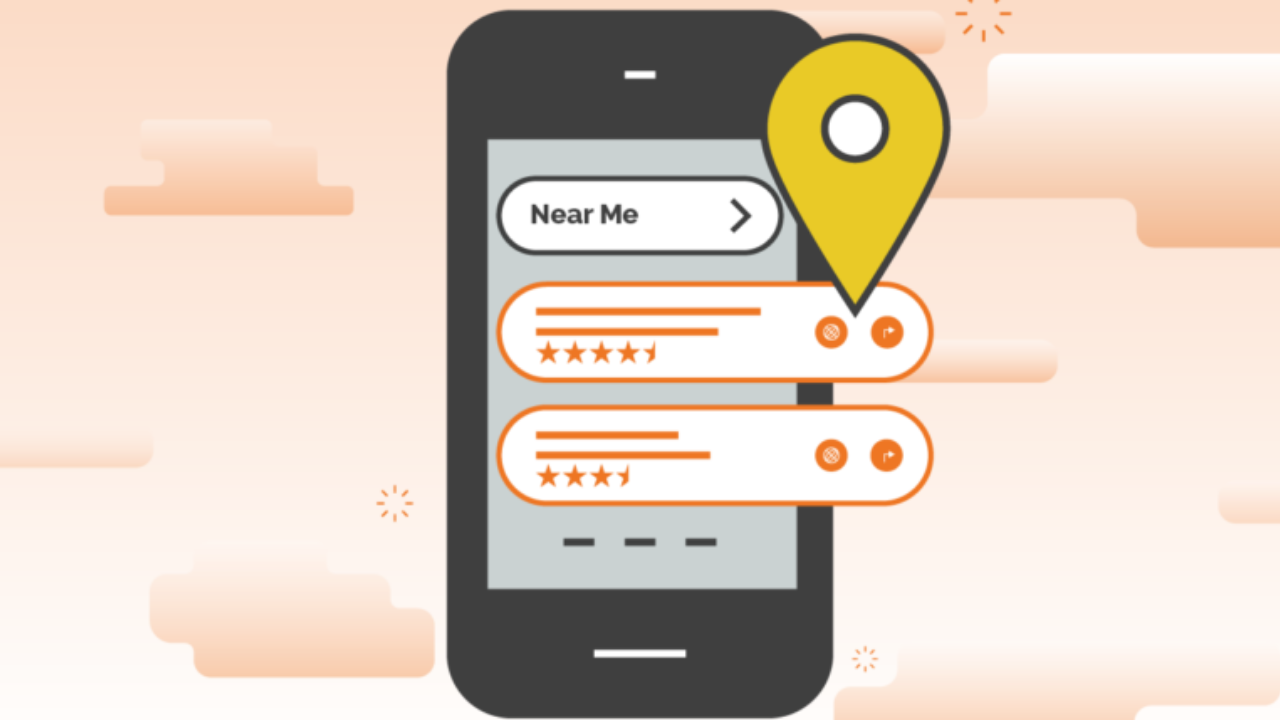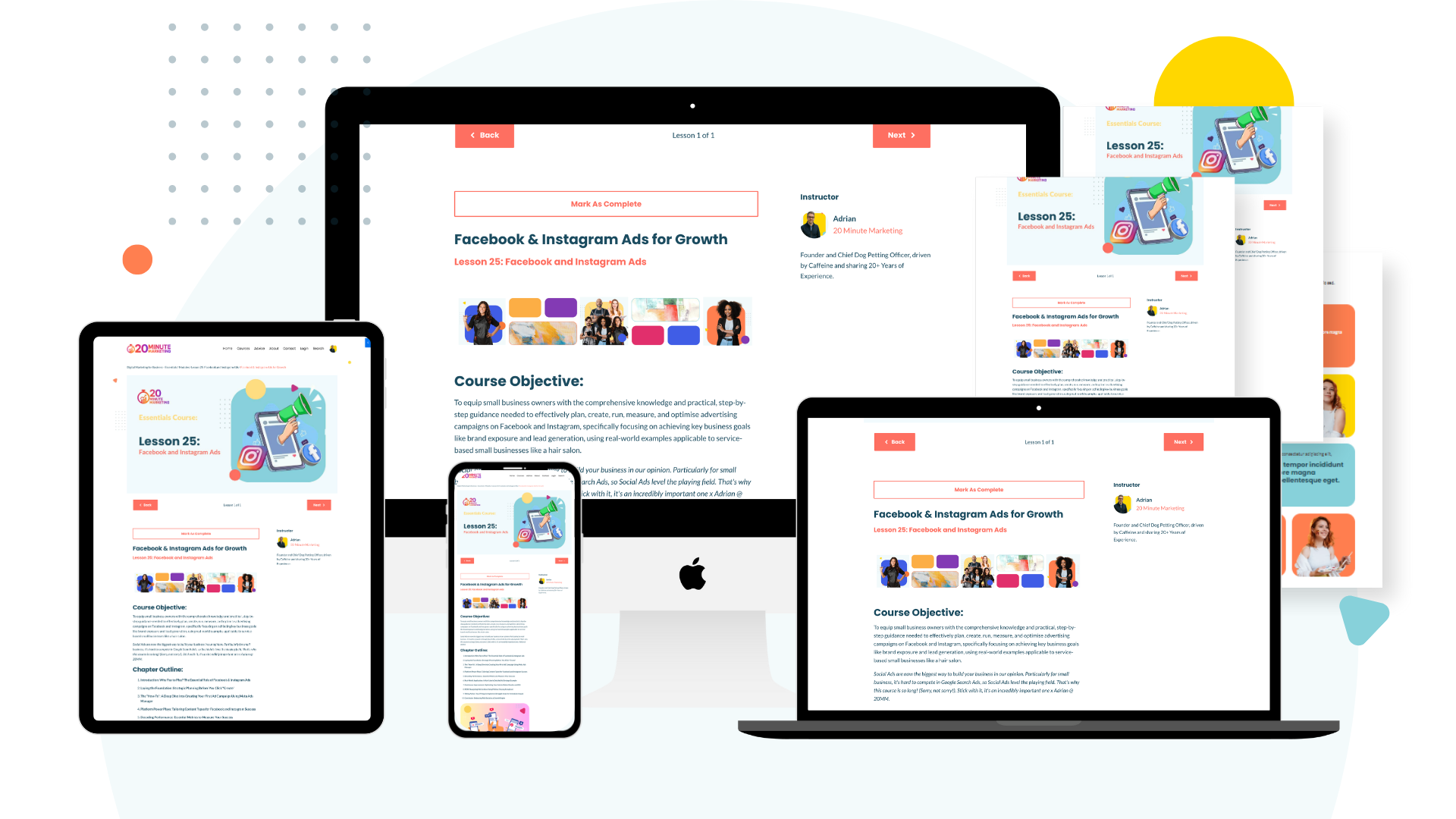How to Rank for "Near Me" Searches: The Complete Local SEO Guide
Jun 09, 2025
Most people think the way to rank for "near me" searches is to literally add the words "near me" all over their website. That doesn't work. Google's not that simple.
The real secret is proving to Google that your business is actually local and relevant. Here's an exact step-by-step action plan you can follow today to start showing up for these valuable searches.
Strategy #1: NAP Consistency
Your business Name, Address, and Phone number (NAP) needs to be consistent everywhere—not just on your website.
We're talking about:
- Your Google Business Profile
- Social media accounts
- Online directories
- Government Business listings
- Literally everywhere your business is mentioned online
Why does this matter? Google cross-checks your information across the internet. If it sees three different phone numbers or your business name written slightly differently in various places, it starts to doubt whether you're legitimate. When Google has doubts, you don't rank.
How to fix it:
Start with your own website. Put your NAP information in the footer of every single page. That way, no matter what page Google crawls, it can instantly connect it back to your business location.
Bonus tip: Link your address in the footer directly to your Google Business Profile using what's called a CID link. This creates a direct connection between your site and your Google Business Profile, reinforcing local signals.
Think of NAP consistency as your proof of address. If it's messy, you look suspicious. If it's clean, you look trustworthy.
Strategy #2: Optimize Your Google Business Profile
This is genuinely step one for local SEO. If you skip this, nothing else matters because the map pack and most "near me" searches are powered directly by your Google Business Profile.
Here's what to do:
Fill Out Everything
- Business description
- Services you offer
- Operating hours
- Business categories
- Products (if applicable)
Don't leave any fields blank. Google rewards businesses that make its job easier by providing complete, accurate information.
Upload Real Photos
Include photos of:
- Your storefront
- Your team
- Your work
- Behind-the-scenes shots
- Recent projects or products
Google favors fresh content, and photos uploaded directly to your Google Business Profile demonstrate that your business is active and trustworthy.
Link Your Website Properly
This is crucial. Link to your homepage or the main page that best represents what you do. Don't link to:
- Your Facebook page
- Your About page
- A random subpage
Think of your Google Business Profile as your digital storefront in Google's ecosystem. If you don't set it up correctly, you're leaving the lights off and the door locked while your competitors are open 24/7.
Strategy #3: Directory Listings and Citations
Get listed in directories like:
- Yelp
- Yellow Pages
- Better Business Bureau
- Industry-specific directories
- Local business associations
"Do people even use those sites anymore?" Honestly, most customers don't—but Google does.
Why they matter: Directories act as confirmation points. When Google sees your business name, address, and phone number appearing consistently across dozens of trusted sites, it reinforces that you're a real business at a real location.
The catch: Your information must match exactly. If one site says "Suite 200" and another says "Unit 200," or you have different phone numbers listed, that inconsistency can tank your local rankings. To Google, it looks like two different businesses, which hurts your credibility.
Important for Australian businesses: Make sure your Australian address format is consistent (include state abbreviations like VIC, NSW, QLD consistently across all platforms).
The bottom line: Directories aren't about driving tons of traffic. They're about building trust with Google. The more trust you have, the more likely you are to rank for "near me" searches.
Strategy #4: Reviews with Photos
This is a total game-changer: get reviews with photos.
Why it matters: When someone leaves you a review and uploads a photo from their phone, that photo carries hidden location data (metadata) in the file. Google can see that information and connects the dots: this customer is local, they visited your business in this city, and they had a real experience with you.
This isn't just words on a screen anymore—it's a verified local signal that tells Google, "This business is active and trusted in this specific area."
How to ask for reviews:
Don't just say, "Can you leave me a review?"
Instead, say: "If you can, please include a photo of your experience—maybe the meal you ordered, the product you bought, or even a shot inside our location."
Those photos build trust with both Google and potential customers who see your listing.
Think about it: If you're comparing two businesses and one has text-only reviews while the other has numerous real customer photos, which one feels more legitimate? Exactly.
You don't need 500 photo reviews. Just getting a steady stream over time makes a huge difference.
Strategy #5: Local Mentions and Links
Everyone knows backlinks help you rank, but for "near me" searches, the type of backlink matters just as much as the quantity.
Google doesn't care if you got a link from a random blog on the other side of the world. What it wants to see is proof that you're relevant in your community.
The strategy: Get mentions from:
- Other local businesses
- Local news outlets
- Charities and community organizations
- Community event websites
- Local government or council sites
Examples:
- Sponsor a youth sports team and get listed on their website
- Donate to a local charity and receive a mention on their supporters page
- Get featured in local news for a community initiative
These aren't just feel-good mentions—they're powerful local SEO signals to Google. It's your community vouching for you online.
Don't overthink it. Start with relationships you already have. Ask businesses you collaborate with if they'll add a link. Reach out to your local news site when you host an event. Join your local council business forum to get listed in their directory.
Each link is like a local stamp of approval that pushes you up for "near me" searches.
Strategy #6: On-Page Local Signals
Make sure your website itself is clearly communicating your local presence.
The problem: Businesses write generic content like "We're a plumbing company. We fix pipes." Google has no clue where you operate.
The solution: Work your city name, suburbs, neighborhoods, and local landmarks into your site copy naturally—not in a spammy way, but conversationally in a way that actually helps customers.
Examples:
Generic: "We provide plumbing services."
Local: "We provide plumbing services to families in Brunswick, from inner-city apartments to houses near Princes Park."
Generic: "We offer family dentistry."
Local: "Looking for a family dentist near Footscray? We've been serving the community here for 15 years."
This gives Google clear geographic context while reassuring people reading your site that you're local and nearby. It's a win-win.
Pro tip: Use Your Blog for Local Content
Write about topics tied to your city or region:
- "5 Common Roofing Issues in Melbourne Winters"
- "Best Suburbs for Families in Greater Melbourne"
- "How Melbourne's Climate Affects Your Garden"
Bottom line: Don't just tell Google what you do—tell them where you do it.
Your Action Plan
Here's what you can implement today:
Step 1: Fix Your Foundation
Go to your website and add your business name, address, and phone number in the footer of every page. Make sure it's exactly the same as it appears on your Google Business Profile.
Step 2: Optimize Your Google Business Profile
Log in, fill out your description, add your services, update your hours, upload fresh photos, and make sure your website link points to your homepage.
Step 3: Build Your Citations
Start submitting your business to local directories:
- Australian Business Register
- True Local
- Yellow Pages Australia
- Yelp Australia
- Industry-specific directories
- Local council business directories
Step 4: Start Asking for Photo Reviews
Whenever someone has a good experience, ask them to leave a review with a picture. It could be their meal, their haircut, their new purchase, or a shot of your storefront. Every photo helps.
Step 5: Get Local Mentions
Reach out to other businesses, organizations, or charities you're already connected with and ask if they can link to your website. Sponsor something local or write a guest article for your chamber of commerce.
Step 6: Add Local Context to Your Site
Go through your service pages and naturally weave in your city name, suburbs, and local landmarks. Do the same with your blog content.
Implementation Timeline
You don't have to do all of this in one day. Pick one step and complete it this week. Then move on to the next.
Week 1: Fix NAP consistency and update your footer
Week 2: Optimize your Google Business Profile completely
Week 3: Submit to 5-10 key directories
Week 4: Ask 5 customers for photo reviews
Week 5: Reach out for 2-3 local mentions
Week 6: Update one service page with local context
Each action compounds. Before you know it, you'll start showing up for more "near me" searches.
Why This Matters for Australian Small Businesses
Local search is particularly competitive in Australian cities. Whether you're in Melbourne, Sydney, Brisbane, Perth, or Adelaide, customers are constantly searching for businesses "near me" on their phones.
Mobile searches with local intent (like "plumber near me" or "cafe near me") have massive commercial value because the person searching often needs a solution right now. They're not browsing—they're ready to act.
By implementing these strategies, you're not just hoping to rank better—you're systematically building the exact signals Google uses to determine which businesses to show for local searches.
The Bottom Line
Ranking for "near me" searches isn't about keyword stuffing. It's about proving to Google that your business is:
- Legitimately local
- Active and trusted in your community
- Relevant to local customers
Follow this six-step strategy, implement one action at a time, and you'll build a foundation for long-term local search visibility.
Need help with your local SEO strategy? Visit 20 Minute Marketing for practical digital marketing solutions designed for Australian small businesses our our expert digital marketing courses.
You'll never need a Marketing Agency again!
Digital Marketing Courses that teach you more than an Agency ever could (or would!)


